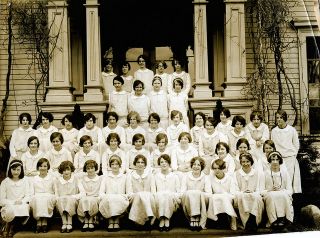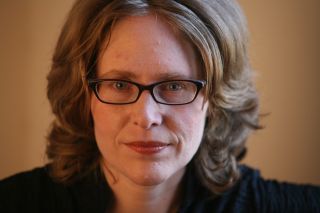Introversion
Why Even Introverts Need Community
A new book discusses the benefits—and challenges—of belonging.
Posted February 18, 2015

Writing my new book, Introverts in Love, I spent a lot of time thinking and talking about intimate relationships, about finding and connecting with that one special someone.
But I recently read another new book that got me thinking about about a different kind of relationship, and one that is no less important: Connection to a larger community.
In her thought-provoking 2010 memoir, Lonely, Emily White explored not only her own and others' feelings of loneliness, but also the stigma of loneliness, the research into it, the damage it can do to individuals and communities. Today White isn't lonely anymore, and writing the book helped.
"It was a four year mindfulness project," she explained when we chatted recently. "If you stare at something for four years and think about it every single day, you wind up on the other side of it."
She had a similar experience working on her new book, Count Me In: How I stepped off the sidelines, created connection, and built a fuller, richer, more lived-in life.
The chirrupy, self-helpiness of the title belies the more serious tone of the book itself, in which White goes out seeking not friends or lovers, but a larger community to become part of. The book is about both her quest specifically and our need in general for situations that put us in contact with people with whom we have no expectations of deep connections, but who will take us outside ourselves, challenge us, and expose us to different ways of thinking and being.
White thinks this sort of connection is beneficial to most people, even introverts like herself. "The notion that you can lead just a private life is not true for everyone," she said, adding that research into loneliness looks first at our relationship with ourselves, then with other individuals, and then with the "collective self"—where we fit within larger groups. "Increasingly we're losing that collective self, focusing on ourselves and our private relationships."
The experiences White writes about in Count Me In include joining protesters of conditions at a slaughterhouse, working in a community garden, attending church, and taking yoga classes.
Yeah, some introverts will recoil at the very idea of joining a group. But think of it this way: relying entirely on intimate relationships to fulfill our needs for human connection puts enormous pressure on those relationships. And because introverts tend to maintain just a few friendships, any attrition leaves us susceptible to loneliness if we have no community surrounding us. Community helps fulfill our very human need for connection without actually requiring a lot from us.
Connecting to a community is very different from spending time with friends and loved ones.
"I do have a BFF," White said. "She's my height, we wear our hair the same way, we went to the same schools, we've known each other for 20 years. It's not that she doesn’t challenge me, but if you looked at us, we're kind of two peas in a pod."
Investing only in private relationships like these, she said, we limit our experience of humanity. "What you don't get is novelty. You don't get to meet people who aren't like you, and you don't get to meet people who really challenge you to be different. People can get into a rut socially. I think we forget that, especially as we get older."

She makes a distinction, though, between communities that come together over a shared mission and those that are pay to play, such as yoga class. She liked the class she took, but was always aware that the people were nice to her because it was their job, and that she belonged only as long as she was willing and able to pay the fee. In addition, she found that coming together over a common cause (politics, faith, support groups) is much more binding than the self-focused experience of a yoga class.
White ultimately found community that suited her in her "old-fashioned" walkable neighborhood, and in a GLBT Catholic congregation, although she is quick to acknowledge that faith isn't the answer for everyone. "I would never push someone who wasn't already wired that way in that direction," she said. "You can't force any type of belonging, especially not faith."
And White also is drawn to political protest—to an extent. "I learned that there are limits to how far I was willing to go with it," she said. "I'm never going to be someone that's camping out in a protest meeting, but I learned that I take a great sense of community from being part of a protest group."
This acknowledgement of our own limits is an important point, especially for those of us who fear that joining a group or volunteering with an organization will lock us in to more than we can handle. "You're not diving into the deep end," White promises. "You start at the shallow end. I could always say no. You can always draw your own lines."
So if you want to just show up once or twice a month, if you want to stuff envelopes but not ring doorbells, if you want to be an anonymous protester in a crowd and not the person interviewed on the evening news, that's fine. You'll still reap the benefits.
If you experiment enough you will eventually find something that makes you want to show up again and again. Where we find community is highly individual and depends on what our passions are. And it takes some effort.
"I started by asking myself what was most important to me, kind of as abstract ideas," White said. "But abstract ideas don't lead to belonging. You have to act on them."
Check out my books, Introverts in Love: The Quiet Way to Happily Ever After; The Introverts Way: Living a Quiet Life in a Noisy World; and 100 Places in the USA Every Woman Should Go. Support your local independent bookstore; click here to find an indie near you.
Want to hang out with a bunch of cool introverts? Join us on my Facebook page.




